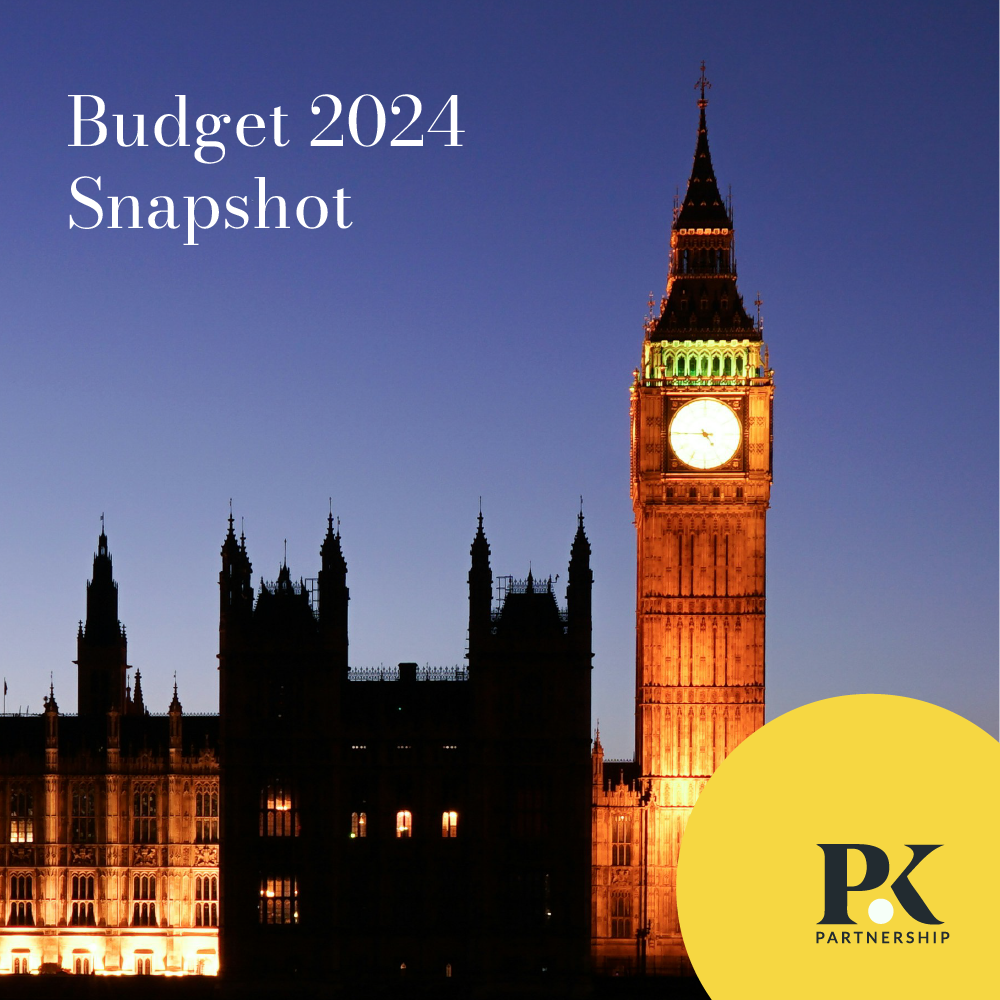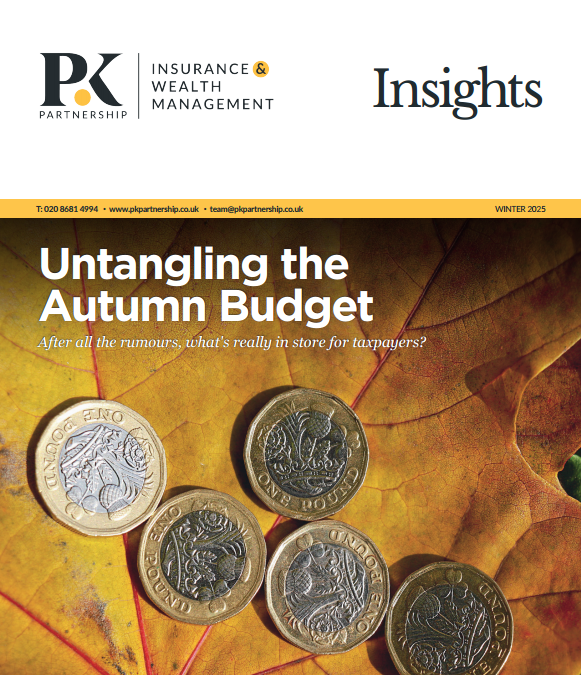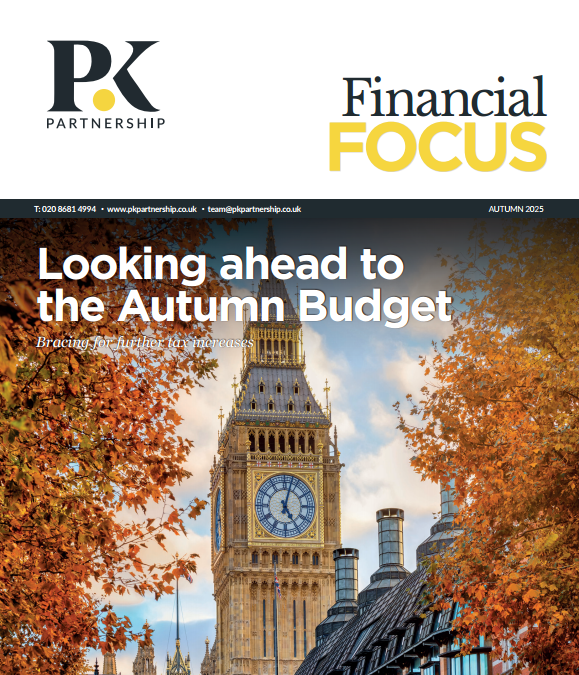March 6, 2024

The Chancellor of the Exchequer, Jeremy Hunt, presented the Spring Budget to Parliament shortly after 12.30 this afternoon.
The Spring Budget sets out the Government’s tax and spending plans and could be the last major fiscal event before the General Election although this still may not happen until 28 January 2025. The Budget takes place after the UK went into recession towards the end of 2023 and while Labour continues to hold a strong lead in the opinion polls and there is ongoing conflict in Gaza and Ukraine.
This snapshot is intended to give you high level bullet points of the key points announced by the Chancellor from the dispatch box.
More in depth details are available from the Government website
OBR economic forecasts
Growth
2024: 0.8% (0.6% in Autumn Statement)
2025: 1.9% (1.4%)
2026: 2.0% (2.0%)
2027: 1.8% (2.0%)
2028: 1.7% (1.7%)
CPI inflation
2024: 2.2% (3.6%)
2025: 1.5% (1.8%)
2026: 1.6% (1.4%)
2027: 1.9% (1.7%)
2028: 2.0% (2.0%)
Public sector net borrowing
2023/2024: 4.2% (4.5%)
2024/2025: 3.1% (3.0%)
2025/2026: 2.7% (2.7%)
2026/2027: 2.3% (2.3%)
2027/2028: 1.6% (1.6%)
2028/2029: 1.2% (1.1%)
Unemployment
2024: 4.4% (4.6%)
2025: 4.4% (4.6%)
2026: 4.2% (4.4%)
2027: 4.2% (4.2%)
2028: 4.1% (4.1%)
Tax and National Insurance
- Employee NI contributions to be reduced from 10% to 8% and self-employed NI contributions reduced from 9% to 6% from 6 April 2024.
- Higher CGT rate for residential property to be reduced from 28% to 24% from 6 April 2024.
- Non-UK domicile tax regime to be abolished and replaced with residency-based system from April 2025. Transitional arrangements will apply to individuals affected.
- High Income Child Benefit Charge income threshold to be raised from £50,000 to £60,000 from April 2024, taper rate to be halved so that Child Benefit will not be repaid in full until income reaches £80,000 and Government to consult on moving to a charge based on household rather personal income.
- Household Support Fund, which is used to support households most in need, to be extended for a further six months until September 2024.
- Alcohol duty freeze extended until 1 February 2025.
- ‘Temporary’ 5p fuel duty cut introduced in 2022 extended until April 2025.
- Vaping duty to be introduced from 1 October 2026 together with a one-off tobacco duty increase at the same time.
- Air passenger duty for non-economy flights to be increased to maintain their real terms value.
Savings and investments
- Consultation on new UK ISA that invests in UK equities with a £5000 allowance in addition to the £20,000 that can be subscribed into an ISA.
- British Savings Bonds to be launched through NS&I in April 2024 that will offer a guaranteed interest rate, fixed for three years.
- Government intends to sell remaining shares in NatWest including some to retail investors during summer 2024 at the earliest.
Business
- VAT registration threshold to be increased for the first time since 2017 from £85,000 to £90,000 from 1 April 2025.
- Government to consult on extending full expensing to assets for leasing.
- Government agreed a deeper ‘trailblazer’ devolution deal with the North East Mayoral Combined Authority.
- Level 2 Devolution Agreements finalised with Surrey County Council, Buckinghamshire Council and Warwickshire County Council.
Housing
- Furnished Holiday Lettings Regime to be abolished from 6 April 2025 to eliminate the tax advantage for landlords who let short-term furnished holiday properties over those who let residential properties to longer-term tenants.
- Stamp Duty Land Tax relief for multiple dwellings to be abolished from 1 June 2024.
- Investments announced in housing developments in Barking Riverside (£124 million) and Canary Wharf (£118 million) with plans to support housing developments in Leeds, Euston and Cambridge.
Contact Us
Should you have any questions or to obtain a quotation please contact us on
020 8681 4994.
Related Articles

Financial Focus: Winter 2025
Welcome to our new-look quarterly Insights newsletter. The Autumn Budget, a winter Budget in all but name appearing as it has only six weeks from Christmas, wasn't too full of festive cheer, with the headline changes being a further extension to the...

Financial Focus: Autumn 2025
In this issue... Attention is turning to the Budget, now scheduled for late November. Having promised that her initial, tax-heavy Budget last year was a one-off, continuing pressures appear to have put that hope into doubt. Our feature in this edition looks ahead to...

Financial Focus: Summer 2025
In this issue... Investors and governments alike have had a turbulent ride as the effects of President Trump's tariff see-saws play out. Continued international volatility and rising living costs mean taking time to focus on financial planning is increasingly crucial....
